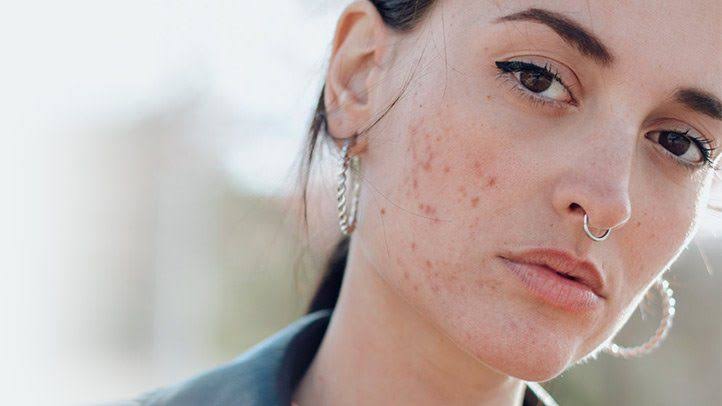Acne is a fairly common inflammatory skin condition that affects most people at some point in their lives. You may be wondering what to do to prevent this when your painful pimples come out. Genetics, hormones, environmental factors, cosmetic products, medications, your diet and regular use of certain medications can cause acne. However, a quick internet search can reveal many treatment methods that do not have scientific support. However, it is important to get help from a specialist in the treatment of painful pimples. In this list, we will share with you the false information that circulates from ear to ear about the formation of acne. Let’s look at what are the legends about pimples.
1. Only acne in young people
If you are an adult and your pimples are dating, you are not alone! Some hormones cause an increase in sebum and growths in skin cells. When these two factors combine, you have acne on your skin out. It is true that during adolescence, pimples appear more. And this continues until adulthood. However, in some people, pimples may appear at a later age. Studies show that 20-29 years old people aged 50%’sin, 30-39 years old people 35%’in, and 40-49% 26’ have acne problems showing. There can be very different reasons for acne in adults. Hormones, endocrine disorders, genetics, stress, cosmetic products, tobacco use and diet are just some of them. Therefore, it is best to work with a healthcare professional to determine the best treatment method for you.
2. Chocolate is bad for the skin
Now take a comfortable breath. Because you do not have to give up chocolate to get rid of pimples. Scientific studies on whether chocolate causes acne or worsens acne are all contradictory. Overall, research does not support the hypothesis that chocolate itself causes acne. But if you think you have an increase in your pimples after eating chocolate, consider eating dark chocolate with less sugar instead of milk chocolate.
3. Dairy products cause acne
There has been a long debate about whether consuming dairy products causes acne. And new research continues to be done. However, these studies give inconsistent results, just like the research on chocolate. For example, in an observational study, which examined many studies, drinking one glass of milk a day causes acne, but drinking 2-6 glasses does not cause acne found. How contradictory is it, right?
Perhaps people who drank less milk also had pimples because they consumed something else. For this reason, scientific studies on the subject do not definitively support that dairy products cause acne. If you want to make a judgment about it, just observe yourself. If you think you are acne after consuming dairy products, you can observe your skin and rearrange your eating habits accordingly by removing dairy products from your diet list for a while.
4. Eating fatty foods can cause acne
If acne is a result of excess oil buildup in the oil glands, eating fatty foods should increase acne, right? The situation is not so simple. This legend continues to be told. Food itself causes very rare acne. But some foods can cause blood sugar problems, inflammation, and intestinal imbalances. This, in turn, can lead to pimples by strengthening the underlying dynamics.
Eating fried and fatty foods every day can cause inflammation. However, eating hamburgers or french fries occasionally does not cause acne. If your diet consists only of fried foods, it may be time to review your diet list. Consuming healthier fats, such as olive oil and omega-3 fatty acids, reduces inflammation. This means that it can potentially help reduce acne. Rather than completely eliminating your favorite foods from your life, it is probably better for you to add nutritious foods to your diet.
5. Gluten should not be consumed for clean skin
There are no studies that show a link between gluten and acne. At the same time, there is no research to show that when gluten is completely released, acne will clear up. A gluten-free diet can be difficult. It can even stress you unnecessarily. As a result, stress can make acne symptoms worse. Long-term and non-strategic dietary restrictions, according to experts, can increase stress levels, making acne worse. Also, if you do not have a condition such as celiac disease, avoiding gluten can cause nutrient deficiency and eating disorders. If you want clean skin, focus on creating a balanced diet that includes all food groups and get help from a specialist.

